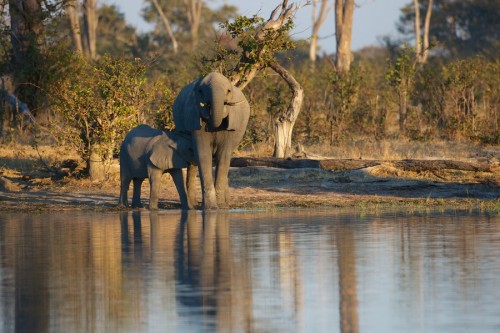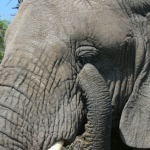by Martina Polley, Conservation Action Trust

The United States government has upheld its earlier ban on the importation of elephant trophies from Tanzania and Zimbabwe for the duration of 2014, despite vocal objections from hunting lobbies.
In April this year, the U.S. Fish and Wildlife Service (Service) suspended imports of sport-hunted African elephant trophies taken in Tanzania and Zimbabwe for the calendar year of 2014. This sparked an outrage with hunting outfitters as well as Safari Club International, who filed a lawsuit against the Service.
“The suspension of hunting trophies of elephant is based on a range of criteria that the countries in question have failed to meet.”
“The message is therefore that unless the respective countries get their houses in order, there will be no further import licenses for trophies, ” explains Mary Rice, Executive Director of the Environmental Investigation Agency, whose organisation called for a US trade embargo against Mozambique last month, for failing to act against unprecedented poaching there.
Zimbabwe Parks and Wildlife, the CAMPFIRE foundation and the Professional Hunters Association of South Africa, along with other hunting and wildlife representatives from Tanzania and Zimbabwe met with the U.S. Department of Interior, U.S. Fish and Wildlife Service, and the U.S. State Department in June to demand a reversal of the ban.
“The Service has completed its review of this information and is unable to find that the killing of an elephant whose trophy is intended for import into the United States would enhance the survival of the species in the wild,” stated the U.S. Fish and Wildlife Service in a press release dated 23 July 2014.
The Service attributed its revised suspension on imports to additional information, which came to light in the review process: A lack of adequate information relating to Zimbabwe’s elephant population, questionable hunting quotas based on inadequate information, a lack of information on how funds generated from elephant sport-hunting are utilized as well as a lack of evidence on the implementation of Zimbabwe’s Elephant Management Plan were cited as some of the reasons for the confirmed suspension.
“The suspension of trophies is a welcome indication that the US is prepared to take tangible action to tackle the current illegal wildlife crisis,” says Rice. “Elephants are impacted by a range of threats and at a time when they are being threatened specifically by poaching to such a degree that there has been such a dramatic decline in numbers means that this impacts on other activities.”
“Trophy hunting import permits are awarded in circumstances where there is clear non-detriment. Obviously in this case, the US government considers there to be some detriment and failure to show that the hunting has conservation benefit.”
Tanzania’s suspension is in place from January 1, 2014 to December 31, 2014, while the suspension of imports from Zimbabwe is from April 4, 2014 to December 31, 2014. The suspensions will be re-evaluated in December 2014 for the calendar year of 2015.




